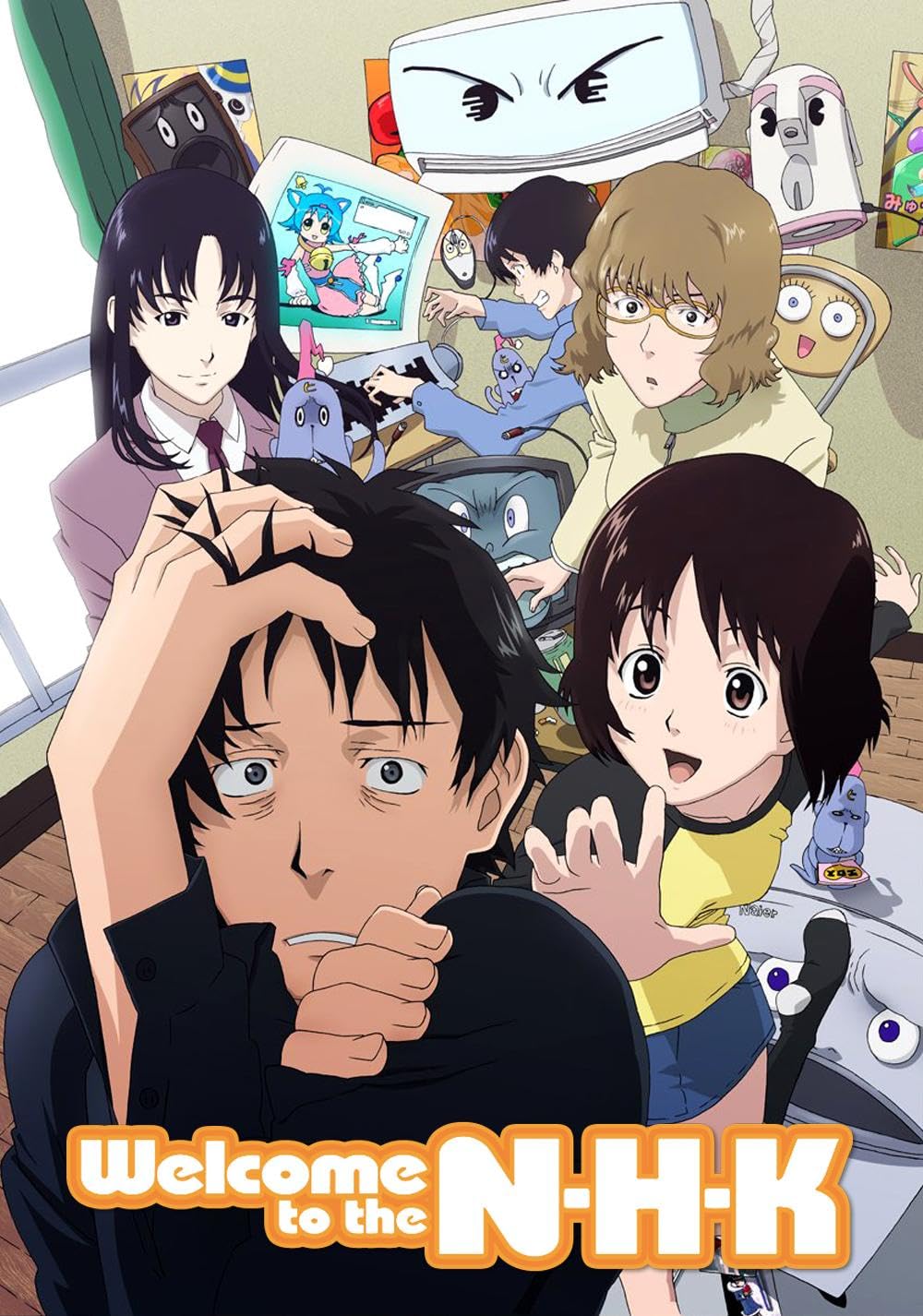This article spoils A LOT about Welcome to the N.H.K. and isn't really a review of it, it's a bit different than my other articles about anime, but I really wanted to write it.
Welcome to the N.H.K. is, for all intents and purposes, an unremarkable anime, light novel, and manga series from the 2000s. Featuring animation that didn't age particularly well, time-period correct degeneracy, and a cast of characters, that appear to be rather generic at first glance. I, however, being the brave explorer that I was in 2021, chose to watch it, and to be honest, it was probably one of the best choices I've made in my life, which seems weird to say about an anime.

N.H.K. originally released as a light novel in 2002, written by Tatsuhiko Takimoto, and illustrated by Yoshitonshi Abe, it was later adapted into a manga in 2003, which was illustrated by Kenji Oiwa, and into an anime by Studio Gonzo in 2008. I've only seen the anime, and have no intention of experiencing the former two, so it'll be the focus of this article.
N.H.K. follows Tatsuhiro Satou, everyone's favorite Terry A. Davis esque delusional and suicidal NEET shut-in. The show has several interesting characters, but for the sake of leaving some of the more absurd elements of the show for you, I won't go over them, rather, I'll just highlight the heroine, Misaki Nakahara. Misaki is an equally delusional individual who seeks to somehow save Satou from his NEEThood, yet in the process they just end up making eachother worse. That's it, that's basically the plot of the show.
I'm sure it seems as though this show is just another piece of fodder to watch or ignore based on what I've said alone, but quite frankly, what happens in the show isn't what makes it so impactful, the bulk of the events in the show solely serve as comedic relief.(blah blah blah mild spoiler warning)
Rather, what makes the show impactful is how it ends, or more so, how it doesn't. Satou just has to go out and get a minimum wage job, he's still delusional, he still wants to be a NEET, but he has no money. Satou just goes out and becomes a productive member of society, not out of choice, but by necesity. Something about how non-comedic this was as opposed to the rest of the show really stuck with me, especially as someone in a similar position at time, functionally being a NEET due to my university being closed, and seriously considering just dropping everything and doing nothing with the rest of my life but sitting around.
Being a NEET shut-in always seems appealing to a lot of people, and I think N.H.K. really shows that well, so much of the show is just comedic relief, as if showing why you SHOULD just lock yourself in your room and never leave. Yet, it ends with this slap to your face, that nothing will ever happen if you don't go out and accept life. Satou doesn't seem to be happy about joining the workforce, but he was equally delusional and suicidal as a shut-in.
If you're going to be unhappy, you may as well be productive while you do it, and at least give yourself a chance to become happy. That's what I took from the show, and quite frankly, I owe my social life and academics to this show, as I probably would've just kept rotting away as I did during COVID if not for the reality check this show gave.
This isn't that good of a show, and I've barely actually mentioned anything about it, but trust me, there's a lot of impactful elements in it, and a decent bit of funny segments, honestly, if anything I said stuck with you, just watch the show. It'll probably hit a different chord than most of the seemingly "life changing" shows were meant to. This isn't Evangelion, this isn't Cowboy Bepop, it's not some deep freudian psychological thing, it's just a reality check. Tm out.
copyright trademarkhell.net 2024-